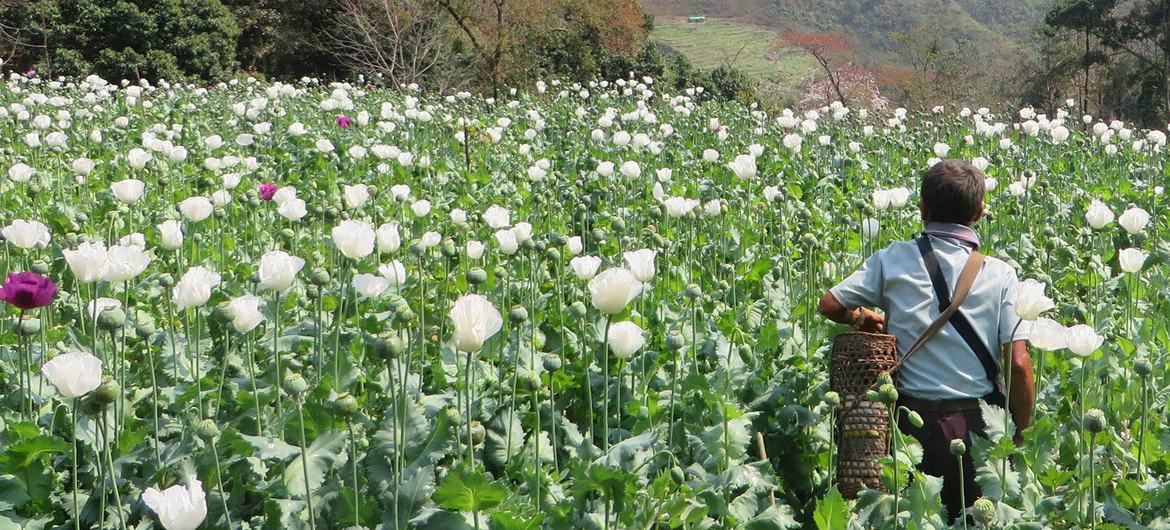“If these illegal economic activities – where there is a lot of money involved – are not curbed, and we cannot restart intensive international and regional mediation efforts to stop the ongoing war, the story of Myanmar is going to be of the disappeared middle [class],” Ms. Wignaraja said.The report has also revealed an alarming picture at the provincial level.In addition to heightened poverty levels, conflict-ridden were also marked by destruction of homes, restricted access to farmlands and an increase in internally displaced people (IDPs) – all leading to yet more hardship.The UNDP Regional Director also emphasized the challenges posed by skyrocketing criminality in the southeast Asian nation.
Zero spending on education
IDPs arriving in urban centres such as Yangon and Mandalay, both for safety and basic services, no longer have any safety net, Ms. Wignaraja said.The states with the lowest rates of per capita income are Kayah, Chin, and Sagaing – regions experiencing high levels of conflict between the junta forces and groups opposing.According to UNDP estimates, billion per year is required to address ballooning poverty, via cash transfers and other means, to help families recover from the “L-shaped” recession amid plummeting economic activity and few signs of recovery.“We are going to see a whole generation that just has a learning and health deficit that is very scary,” she warned.
Regional picture
In a new report published on Thursday UNDP said that the middle class has shrunk by half, compared with before the 2021 military coup, and that three quarters of the country’s population is either living in poverty or “perilously close” to the national poverty line.“We call on all stakeholders – inside and outside Myanmar – to take action and preserve vulnerable households from slipping into irreversible poverty and despair” Mr. Steiner urged.Speaking to journalists at UN Headquarters in New York, Kanni Wignaraja, UNDP Regional Director for Asia and the Pacific, explained the dire situation.“During the COVID-19 [pandemic], the spending on education was meagre – two to three per cent of household’s income – it is now close to zero,” she said, adding that families are pulling children out of school and unable to spend on healthcare and other basic services.

She cited recent findings by the UN Office on Drugs and Crimes (UNODC) that Myanmar is the largest producer of opium and the massive proliferation of organized crime, especially the so called “scam centres”.
Proliferation of organized crime
“The new data show that less than 25 per cent of the population in Myanmar manage to secure steady incomes to live above the poverty line. Without immediate interventions to provide cash transfers, food security and access to basic services, vulnerability will keep growing, and impacts will be felt across generations” said Achim Steiner, UNDP Administrator.A poppy field in East Shan state, Myanmar.Polling over 12,000 households across Myanmar, the report also found that families and households have been forced to resort to various, often unsustainable, coping mechanisms.